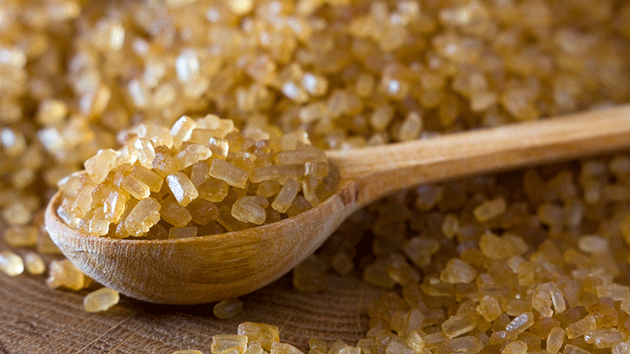Exploring Eco-Friendly Cane Sugar Processing Chemicals
Exploring Eco-Friendly Cane Sugar Processing Chemicals
Blog Article
Navigating Regulatory Conformity and Sustainability With Cutting-Edge Walking Stick Sugar Handling Chemicals in the Chemical Export Market

Regulatory Landscape Review
In the realm of walking stick sugar processing chemicals within the chemical export market, understanding the governing landscape is critical for making sure compliance and lasting procedures. Regulative bodies such as the Environmental Defense Company (EPA) and the Food and Medication Management (FDA) play an important function in overseeing the production, import, and export of these chemicals. Compliance with regulations established forth by these bodies is not just a lawful need yet likewise necessary for preserving public health and wellness and environmental safety and security requirements.
Regulative frameworks controling walking stick sugar processing chemicals incorporate a variety of elements, including labeling needs, acceptable levels of particular compounds, and guidelines for safe handling and disposal. For chemical merchants, this implies sticking to stringent paperwork processes, quality control actions, and regular audits to show adherence to these policies.

Sustainable Walking Stick Sugar Chemical Innovations

One prominent area of development is the growth of eco-friendly chemicals that minimize water and energy intake throughout the sugar processing phases. By carrying out these lasting options, companies can decrease their carbon impact while keeping high degrees of performance. Furthermore, innovations in eco-friendly chemicals are obtaining grip, using a more ecologically friendly alternative to typical processing representatives.
In addition, the assimilation of sustainable energy sources in the production procedure is ending up being much more prevalent, additional improving the sustainability account of cane sugar handling. By accepting these sustainable cane sugar chemical technologies, business can not just meet regulatory requirements yet additionally show a dedication to environmental responsibility in the chemical export sector.
Conformity Obstacles in Exporting Chemicals
Browsing regulatory structures postures substantial challenges for chemical exporters, calling for careful interest to conformity requirements and global legislations. Exporting chemicals includes adherence to a complex internet of policies that differ from country to nation. Among the key compliance obstacles faced by chemical exporters is making sure that the products meet the details governing requirements of the importing nation. This click here for more includes acquiring the essential licenses, qualifications, and paperwork to show the security and validity of the chemicals being exported.
Furthermore, chemical merchants should stay abreast of continuously evolving requirements and laws associated to chemical transport, production, and handling. Failing to adhere to these guidelines can lead to serious consequences, consisting of penalties, lawful action, and reputational damage. Browsing profession restrictions, assents, and export control legislations adds an additional layer of complexity to the conformity landscape for chemical exporters.
To alleviate these obstacles, chemical merchants must spend in robust conformity programs, conduct regular audits, and involve with governing authorities to make certain a detailed understanding of the applicable laws and guidelines. By focusing on compliance and remaining positive in attending to regulatory challenges, chemical merchants can navigate the intricacies of international profession successfully.
Ecological Effect of Walking Cane Sugar Handling
The environmental implications of cane sugar processing are an important aspect you can try here needing comprehensive examination in the chemical export industry. Walking stick sugar handling can have considerable environmental impacts at numerous phases of manufacturing. One of the main problems is the generation of large quantities of wastewater including raw material, put on hold solids, and chemicals made use of in the handling plants. This wastewater, if not appropriately treated, can pollute water bodies, injury water life, and weaken general water top quality. Furthermore, the burning of sugarcane areas before collecting, an usual practice in some areas, releases harmful air contaminants and greenhouse gases right into the environment, contributing to air quality issues and environment modification.
In addition, the considerable use chemicals and fertilizers in sugarcane farming can bring about soil destruction, water contamination, and damage to non-target organisms. It is vital for chemical exporters entailed in the cane sugar processing industry to execute lasting practices, buy sophisticated wastewater therapy innovations, advertise liable farming methods, and abide by stringent environmental guidelines to lessen the unfavorable environmental impact of their procedures.
Future Trends in Sustainability Practices
What innovative methods are chemical exporters in the cane sugar handling market taking on to improve sustainability practices for the future? As the need for lasting practices remains to expand, chemical merchants are accepting different trends to ensure a greener future for the industry. One popular trend is the change towards creating and utilizing environmentally friendly chemicals in the handling of walking cane sugar. These chemicals are made to decrease ecological impact while maintaining high levels of efficiency in the manufacturing process.
An additional key trend is the execution of advanced innovations such as automation and data analytics to maximize resource usage and reduce waste generation. By taking advantage of the power of data and automation, chemical merchants can streamline their operations, enhance energy performance, and enhance general sustainability efficiency.
Furthermore, cooperations and collaborations with sustainability-focused companies and stakeholders are becoming progressively usual. By functioning with each other, chemical exporters can exchange knowledge, share finest methods, and Get More Info jointly drive innovation towards more lasting cane sugar processing methods. Accepting these fads will not only profit the setting yet also guarantee long-lasting success and competition in the sector.
Verdict
Finally, the chemical export market must browse intricate regulatory landscapes and sustainability challenges when processing cane sugar. Advancements in walking stick sugar processing chemicals are essential to fulfilling compliance criteria and decreasing ecological impact. As the sector continues to develop, it is necessary for business to adopt sustainable methods and remain ahead of future trends to guarantee long-term success.
In the realm of cane sugar processing chemicals within the chemical export sector, recognizing the governing landscape is vital for ensuring conformity and lasting operations.Exploring innovative methods in the development of lasting walking stick sugar chemical services is important for progressing ecological stewardship in the chemical export market. Business are increasingly spending in study and growth to produce cutting-edge walking stick sugar handling chemicals that not only ensure high performance in sugar production but also stick to strict sustainability standards.
In addition, chemical exporters have to remain abreast of continuously evolving requirements and policies connected to chemical handling, transportation, and manufacturing - Cane Sugar Processing Chemicals.The environmental ramifications of walking stick sugar processing are a critical element requiring complete evaluation in the chemical export industry
Report this page